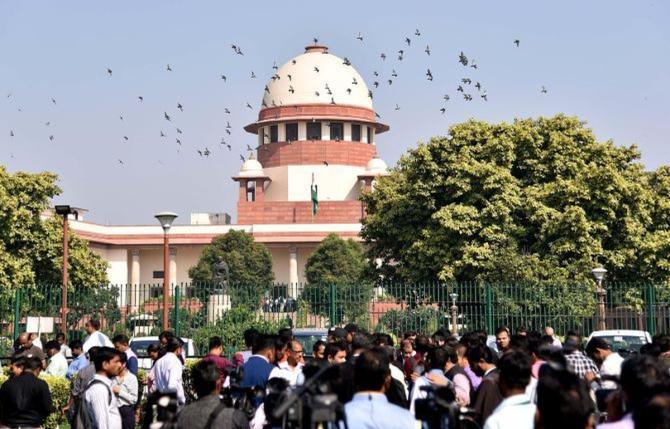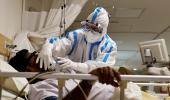The Supreme Court on Monday said the Centre and the state governments cannot be expected to provide security cover to private hospitals, which are business enterprises and have to make their security arrangements.

The apex court was hearing a petition seeking directions to the authorities to ensure adequate security at hospitals and medical centres to prevent attacks on doctors and healthcare workers by relatives of patients and others.
A bench of Justices SK Kaul and AS Oka observed that private hospitals and medical centres must make their security arrangement and in so far as government hospitals are concerned, security is arranged by the concerned hospitals.
The top court observed that a large number of hospitals, nursing homes, and medical centres in the country are private ones.
"You want the government to provide security to each hospital?" the bench asked the counsel appearing for the petitioners.
"The private centres must make their own security arrangement. You cannot burden the government," observed the bench, which was hearing a plea filed by the Delhi Medical Association and Dr Satyajit Borah, who is the president of the Assam state branch of the Indian Medical Association.
The counsel appearing for the petitioners told the bench that they would amend the plea appropriately and submit the relevant materials.
"We are not inclined to entertain the petition as framed because it lacks particulars. Nor are we inclined for the all-encompassing prayers made as the private hospitals will have to make their own security arrangements and we cannot expect the state government or the Central government to provide security cover for private hospitals which are business enterprises," the bench said.
After the counsel said they would amend the plea, the bench said, "On the needful being done, list before the court".
At the outset, the bench asked what kind of norms could be laid.
It also asked the petitioner's counsel as to why they have not approached the high court on this issue.
The DMA's counsel, who referred to an order of the Bombay high court, said the problem is pan-India.
The lawyer argued that norms that could be laid down are that some system of security should be there.
"Every hospital has a system of security," the bench observed, adding, "Can the court go and say I will check your security system?".
The bench said it is unfortunate if such an incident occurs at a hospital but private hospitals have to make their security arrangements.
"You cannot expect the government to create a security force to protect private businesses," it said, adding that government hospitals have a security system.
The counsel said government hospitals have a security system in metropolitan or big hospitals but in smaller towns or sub-divisions, there is no security.
"Should the judiciary get into all this? That is the problem. How do we create all this? Who will give the money?" the bench observed.
It also asked whether the association has approached the state governments and made any requests on this issue.
"How many government hospitals have security, how many government hospitals do not have, where is the data which you are saying," the bench said.
It observed that there should not be any assault on doctors is one thing and there should be adequate security provided is another thing.
"Like this, we are not going to step into an arena which is in the Executive's domain," the apex court said.
The bench said it is not willing to pass an order that in private hospitals and nursing homes, the government must provide security.
"These are all business enterprises," it said.
The plea, filed through advocate Sneha Kalita, also sought directions to the Centre and states to have a distress fund to grant compensation to the victim or family of the deceased healthcare workers, including doctors and nurses, in such violence.
The petition says there is an increase in the number of such assaults and verbal abuse, and "extreme incidents of public lynching" that have led to the death of doctors or health workers.
"The petitioners are seeking appropriate directions in the form of guidelines to have a security system in place to ensure a safe working environment for the medical service personnel/ professionals and the health care workers," it said.
"At present, there is no substantial central legislation which has a holistic mechanism of preventive, punitive and compensatory measures which can address the above-mentioned issues of violence against medical service personnel/professionals and the health care workers," the plea claimed.










 © 2025
© 2025